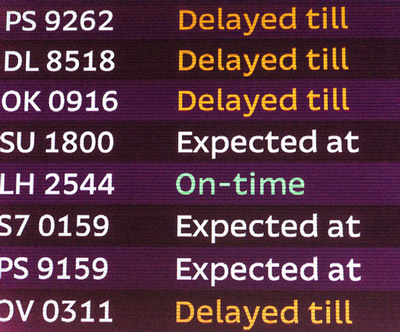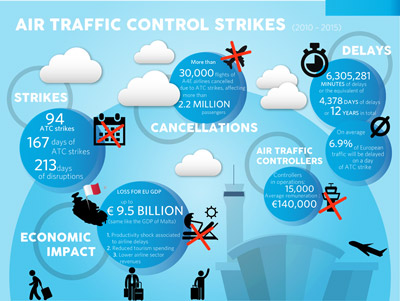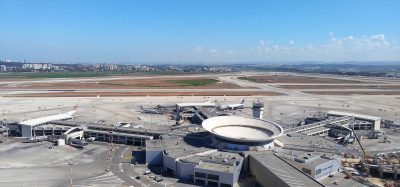Study suggests Air Traffic Control strikes reduced EU GDP by €9.5bn from 2010-15
- Like
- Digg
- Del
- Tumblr
- VKontakte
- Buffer
- Love This
- Odnoklassniki
- Meneame
- Blogger
- Amazon
- Yahoo Mail
- Gmail
- AOL
- Newsvine
- HackerNews
- Evernote
- MySpace
- Mail.ru
- Viadeo
- Line
- Comments
- Yummly
- SMS
- Viber
- Telegram
- Subscribe
- Skype
- Facebook Messenger
- Kakao
- LiveJournal
- Yammer
- Edgar
- Fintel
- Mix
- Instapaper
- Copy Link
Posted: 4 July 2016 | Katie Sadler, Digital Content Producer, International Airport Review | No comments yet
Airlines for Europe (A4E) has published findings of a PwC study revealing Air Traffic Control strikes reduced European Union GDP by €9.5 billion during 2010-15 period.


Airlines for Europe (A4E) has published findings of a PwC study revealing Air Traffic Control strikes reduced European Union GDP by €9.5 billion during 2010-15 period.


The study suggests Air Traffic Control (ATC) strike action over the past 6 years has reduced EU GDP by €9.5 billion (at 2015 prices) and if action were to continue during the period 2015-20, would equate to the entire GDP of Malta.
167 Air Traffic Control strike days in the period 2010-2015
According to the study, from 2010 to 2015, there were 167 ATC strike days in the EU – one disrupted day every 13 days. In total there were 213 disrupted days during this period if you take into account the days before and after an ATC strike. Across the EU, ATC strikes occur the most frequently in France, followed by Greece, Italy and Portugal. A4E believes this has equated to 30,000 cancellations and more than 6 million minutes of delay among its airlines
“The European aviation sector – with 900 million passengers each year – is one of the best performing parts of the European economy. Any disruption has severe knock-on effects on tourism and other sectors. We cannot let this destruction of productivity continue. These latest figures should provide a wake-up call for politicians in Brussels and the member states to work together with stakeholders on long-term solutions to protect individual mobility and European prosperity”, said Thomas Reynaert, Managing Director of A4E.
Findings of the report reveal:
- The majority of the economic impact of ATC strikes is felt through reduced tourism spending. PwC suggests the overall impact through this channel over the past six years amounts to around €5.6 billion or just above €930 million a year.
- The second largest impact is felt through the reduction in productivity associated with longer flights and waiting times. The cumulative economic impact felt through this channel amounts to €3.3 billion or €550 million a year.
- The third largest impact is felt via lower airline sector revenues. The economic impact of this is around €551 million or around €92 million per year (all at 2015 prices).
- Taking into account delays associated with rescheduling as well as delays to last-filed flight plan, the true economic impact over the six years is €9.5 billion, associated with 131,000 jobs.
Mr Reynaert continued, “Tourism plays a major role in the EU economy and is the third largest social-economic activity in the EU generating over 5 percent of EU GDP. Southern European states suffer more than others from ATC strikes because passengers are unable to reach their holiday destination. The EU Commission needs to put the tourism sector back into the spotlight – there are barely better programmes to tackle high rates of youth unemployment in Southern Europe,” he said.
The PwC report, The economic impact of ATC strikes in Europe, can be downloaded here.



















